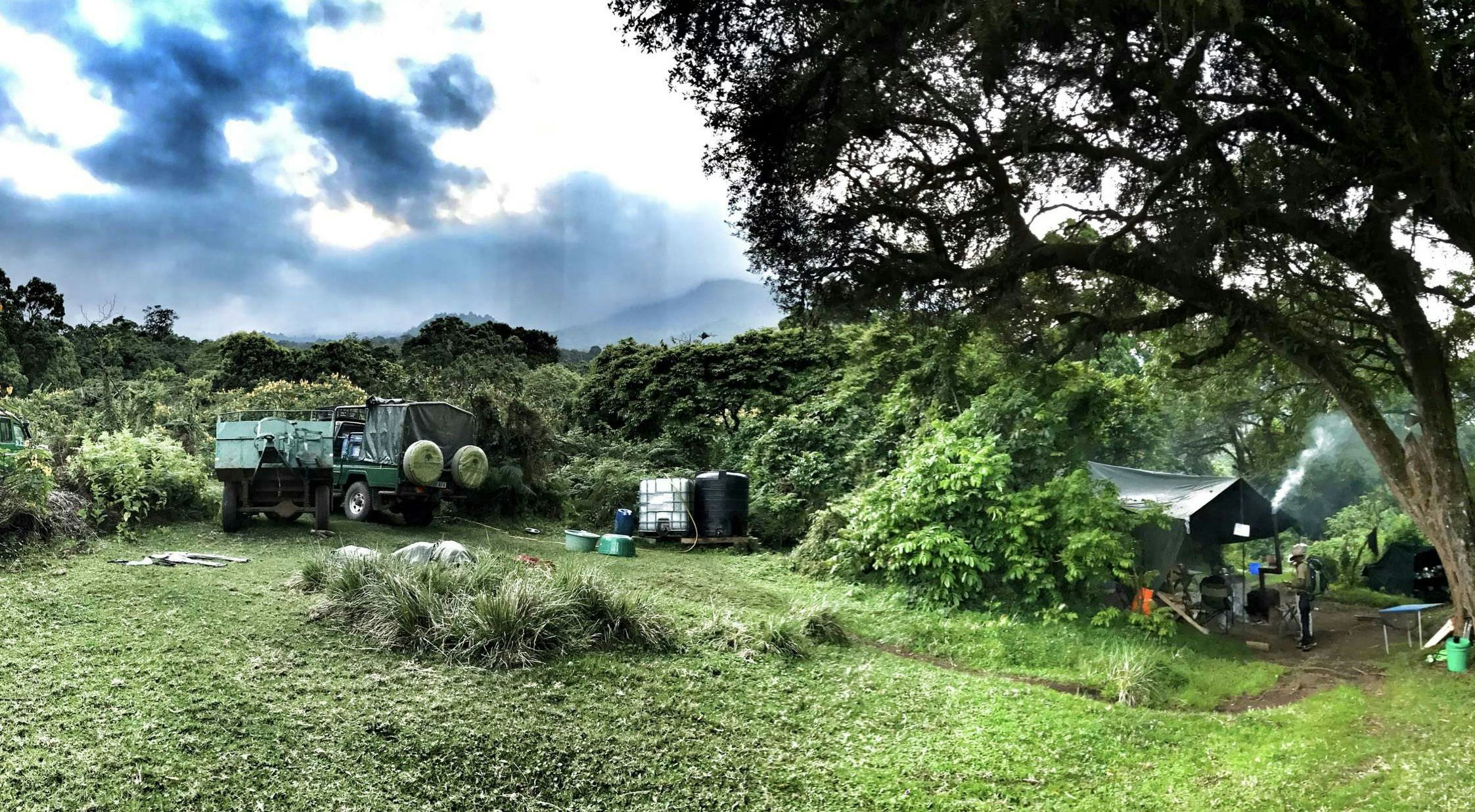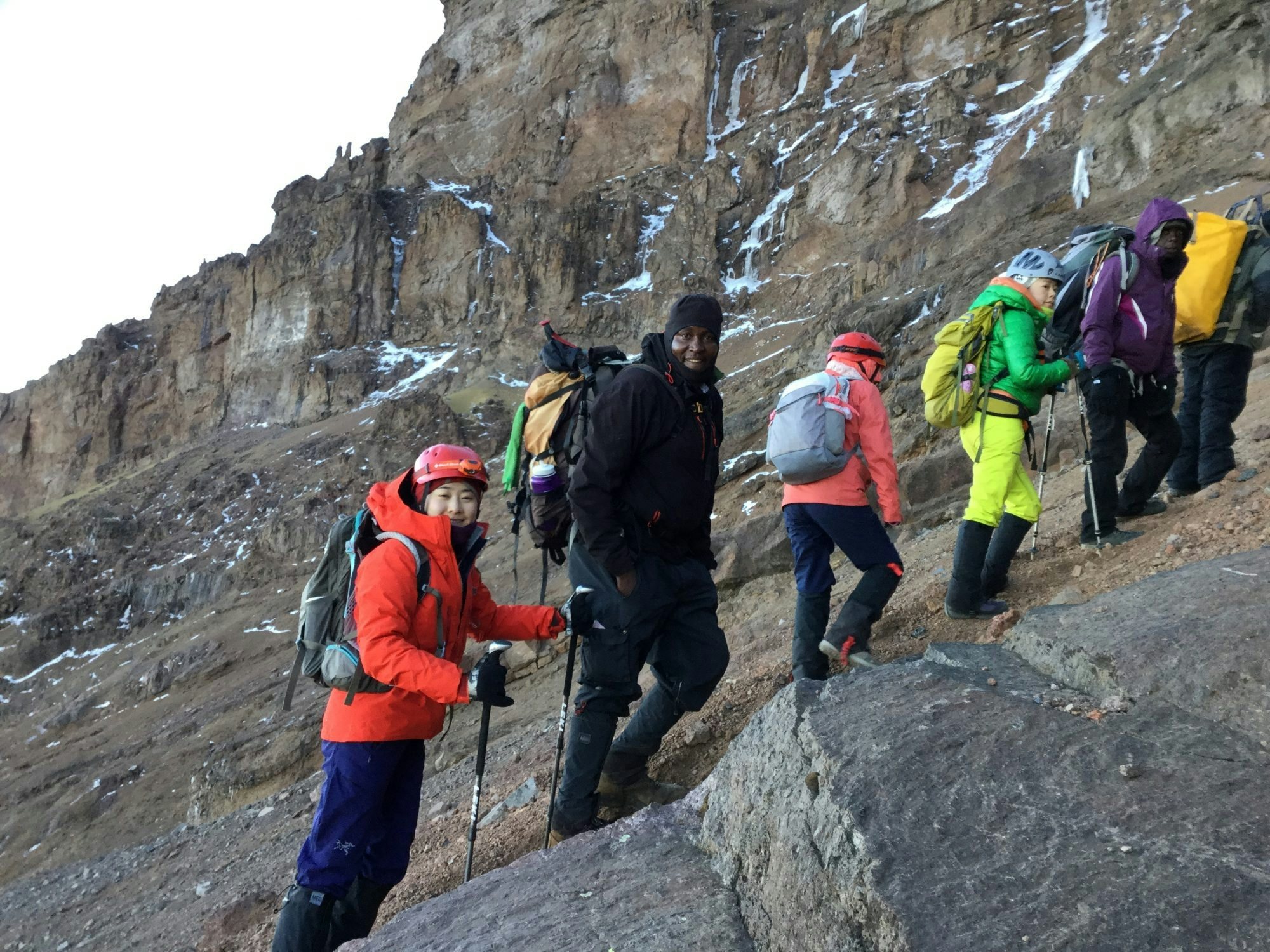It used to be that the tour bus and shopping were synonymous with Chinese travel. Now, for an increasing portion of wealthy outbound jetsetters, it's not a trip if it hasn't included remote hiking on one of the highest mountains in the world or taking selfies with wild, exotic animals in the backdrop.
Adventure travel has no doubt become increasingly appealing to young, affluent Chinese tourists. As China's number of outbound trips surpassed 100 million in September, more travelers have been seeking ways to stand out among their friends by embarking on uncharted territory. The growing number of direct flights between China and popular outbound destinations and relaxed visa policies between countries has helped to shape travel trends, but Chinese consumers' growing demand for a healthy lifestyle, a desire to get away from crowds and pollution, and pop culture and entertainment have also helped fuel a hunger for new experiences.
With these factors in play, Chinese tourism to more remote sightseeing spots outside the U.S. and Europe have been on the rise. For example, Ctrip named Peru, most coveted for its Incan world heritage site Machu Picchu, as destination of the year last year. Other Latin American hotspots, including Colombia, Chile, and Argentina have seen Chinese tourists increase by more than 20 percent year-on-year, according to a thought-leadership paper by premium lifestyle communications agency Reuter Communications. New Zealand, the Arctic, and South Africa have also been on Chinese travelers' itineraries, and when it comes to more common destinations like Japan, the United States, and Europe, Chinese travelers are increasingly avoiding the big metropolises and opting for the paths less traveled.
While increasingly attractive and accessible, these destinations are often difficult to navigate, which is where luxury travel agencies come in. Companies like Beijing-based 碧山 WildChina and London-based Jacada Travel are rising to the challenge to bring discerning tourists trips that not only appeal to their adventurous side, but offer the comfort and convenience affluent Chinese tourists are expecting.
“We are seeing a number of travelers balancing their trips between luxury and adventure,” Lillian Lee, a partner at Reuter Communications, said. “They might spend several days climbing in the foothills of Bhutan, but then they will head to a stunning resort like Amankora for indulging and pampering.”
The Chinese arm of Wild China, called Beshan (碧山), first started offering outbound trips for Chinese clients in 2011, and since about 2013, they started to see a boom in demand for outbound adventure and experience travel, according to Sissi Cheng, the deputy director of Beshan's outbound business department. Some of their most in-demand trips have been in South Africa and Bhutan, but this year was the first time they offered one of their most popular luxury tours: a hike to Mount Kilimanjaro for a group of 10 people.
Mountain climbing has risen in popularity ever since public figures like Wang Shi, the chairman of one of China's largest real estate developers, Vanke, started climbing Mount Everest in 2003 and 2010. But the trip up Tanzania's tallest mountain with Beshan is not exactly Everest material—the travel agency brought along 72 porters, (that's almost seven service people per traveler), to manage their luxury tent along the journey. With the porters came seven chefs who cooked three full meals a day for the group.

Cheng described her clients as “around 30 years old and quite active,” and most of them were friends or knew each other through other friends. Most of them work in finance and have a flexible budget—one of Beshan's clients spends an average of 1 million RMB a year for three trips.

One of the biggest differences between Wild China's Western clients and Chinese clients is that the Westerners like to travel in groups of twos or threes, but Chinese travelers come in much larger groups of friends or families—10 friends hiking Mount Kilimanjaro together is not unusual. Cheng said their clients are also well-educated, well-traveled, and often do not need English guides.
At Beshan, they are all about looking for that experience that takes a trip to the next level. For example, for one of their trips to South Africa, they invite along a professor who educates the group on protecting rhinos from poaching. They also do wine tours and photography tours, and they plan to expand on the mountain-climbing offerings as the Kilimanjaro group loved their tour so much that they want to do Mont Blanc next year.
Jacada Travel has a similar clientele, although their run in China is just beginning. The company is counting on eight years of experience and vast connections in coveted destinations all over the world to start focusing on the wealthy mainland market and give Chinese adventure seekers one of a kind opportunities to fulfill their dream itinerary. Founded by a former Brazil expat, Alex Malcolm, the company promises bespoke luxury adventure trips to Africa, Latin America, Europe, and the Polar Regions. Jacada officially announced its mainland China expansion last month after opening an office and Explorer Lounge in Hong Kong last year. Malcolm said the agency will soon have their website translated into Chinese, where journeyers can navigate example trips before calling to set up a bespoke itinerary.

Chinese luxury consumers' obsession with fitness and health is partly the motivation behind Jacada's newest destination offerings like New Zealand and Patagonia, Malcolm said. Here, similarly to the comfortable luxury of Beshan's Kilimanjaro glampers, tourists can try “soft adventure,” like light hiking with a guide or mountain biking with the whole family.
For China's adventure travelers, vacations are also about getting access to the furthest away destinations. According to Hurun's Chinese Luxury Traveler 2015 report, about a third of ultra-wealthy respondents surveyed who spent, on average, US$58,000 on travel per year, were headed to the South Pole for Chinese New Year holiday. Jacada is one of the tour agencies that offers private cruises to Antarctica, which start at more than US$12,000 per person and top out at more than $80,000 per person for a six-day trip that includes penguin watching and exploring ice caves.
“It's huge, and it's not a cheap destination,” Malcolm said. “For whatever reason, it really resonates with the market in China. It's free from all politics, it has clean air, it's away from civilization, and that's what people want. People are just trapped in urban life.”
